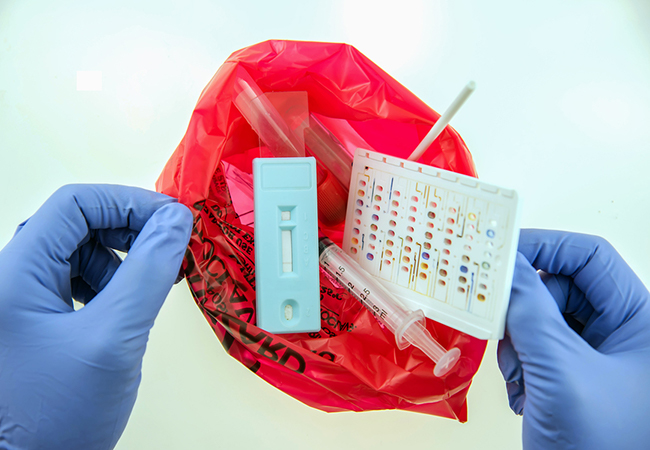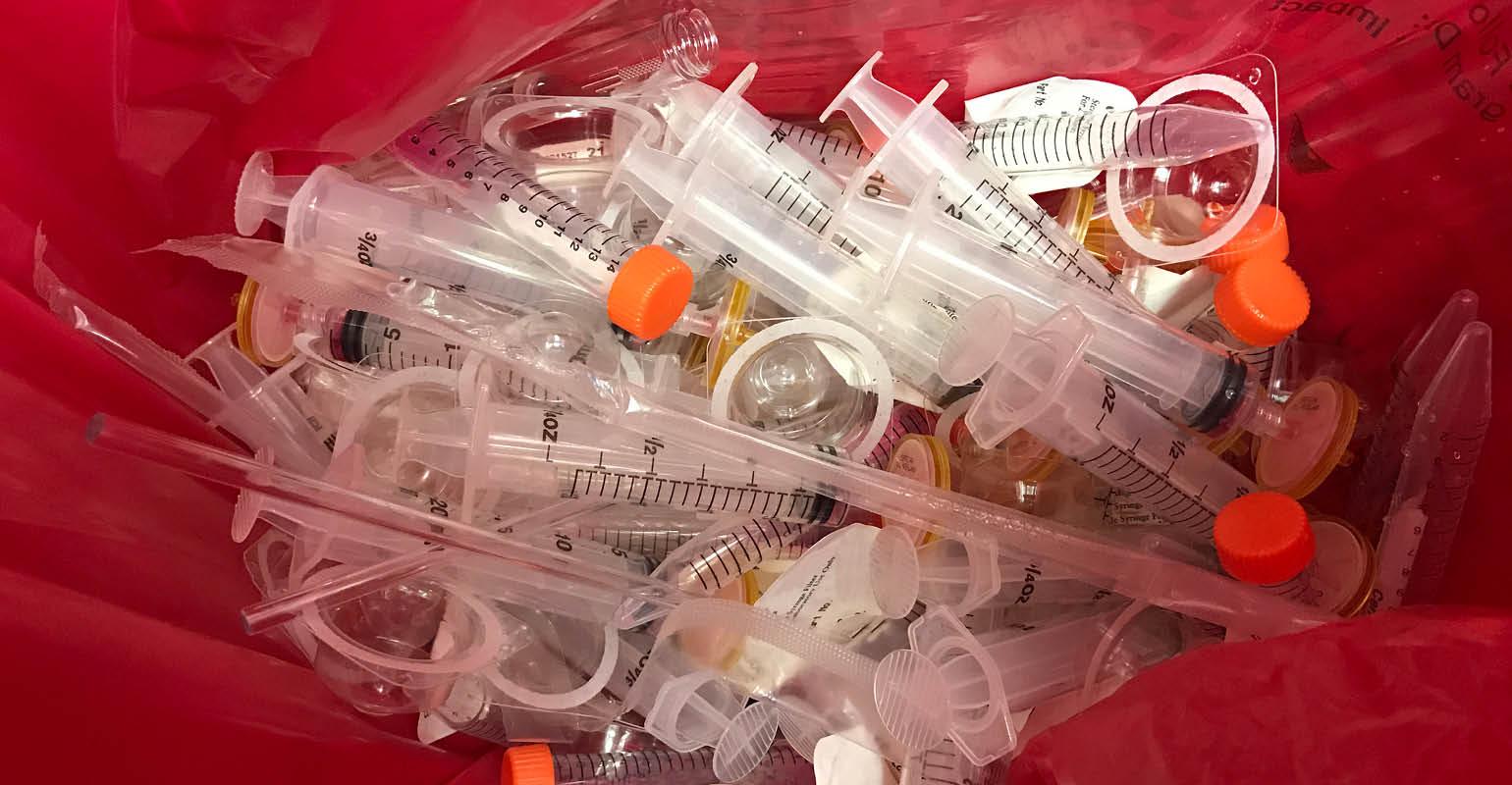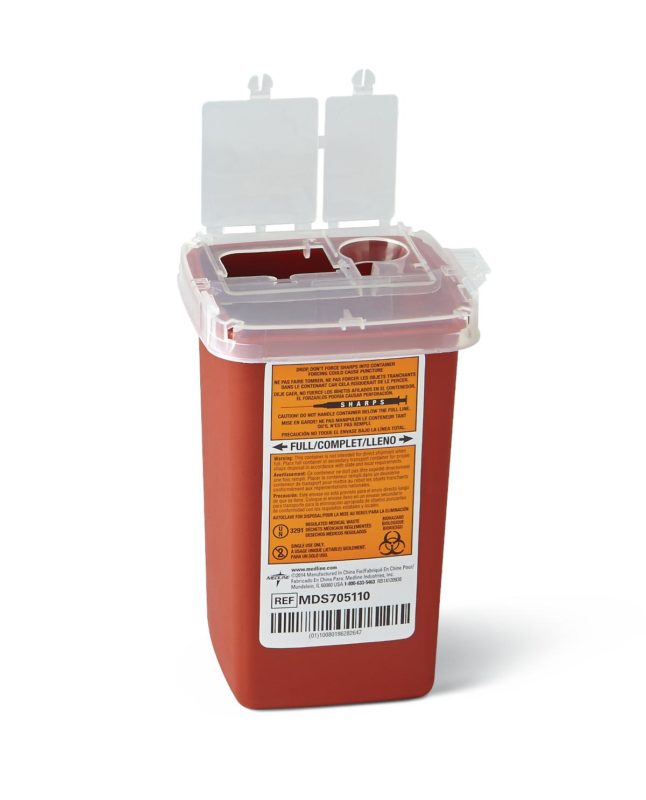Medical Waste Removal Excellence: Elevating Security Requirements in Your Facility
Wiki Article
Keep Ahead of Rules: Expert Advice on Medical Garbage Disposal
In a world where the healthcare sector is continuously developing, it is crucial for medical centers to stay ahead of guidelines when it comes to the appropriate disposal of clinical waste. From comprehending the different groups of medical waste to applying the ideal collection and segregation techniques, this discussion will certainly offer actionable ideas and important understandings to help centers stay in advance of regulations in the ever-changing landscape of clinical waste disposal.Recognizing Medical Waste Categories
Recognizing medical waste categories is vital for proper disposal and management in medical care facilities. Medical waste refers to any type of waste created by medical care tasks that may position a risk to public health or the environment. It is crucial to classify clinical waste precisely to guarantee its secure handling, disposal, therapy, and transportation.There are several classifications of clinical waste that healthcare facilities need to be accustomed to. One of the most usual categories include contagious waste, pathological waste, sharps waste, pharmaceutical waste, and chemical waste. Each group has specific guidelines and policies for its appropriate monitoring and disposal.
Infectious waste includes materials contaminated with blood or other bodily fluids, such as gloves, gowns, and lab societies. Pathological waste describes human cells, body organs, or body components that call for special delivery and disposal. Sharps waste consists of made use of needles, syringes, and various other sharp things that can create injury and send infections. Drug waste consists of run out, extra, or contaminated medicines that require mindful handling and disposal. Chemical waste includes solvents, disinfectants, and various other chemical materials utilized in health care facilities.
Staying Up-To-Date With Regulatory Modifications
Staying present with regulative adjustments is crucial for healthcare facilities to ensure conformity and correct administration of medical waste disposal. medical waste removal services. With guidelines continuously evolving, it is crucial for medical care facilities to remain updated to avoid fines, penalties, and potential injury to the atmosphere and public healthTo remain ahead of governing modifications, medical care facilities should develop a system for monitoring and monitoring updates. This can be done by subscribing to governing newsletters, participating in workshops and conferences, and proactively participating in market associations. Furthermore, centers ought to mark a team member or team accountable for remaining notified and sharing info to pertinent stakeholders.
Regular interaction with governing companies is additionally essential. Healthcare centers should establish partnerships with local, state, and federal firms to ensure they are conscious of any kind of changes in policies that might influence their waste management methods. This can be done with normal meetings, engagement in public remark durations, and positive involvement with governing companies.
Furthermore, healthcare centers should think about partnering with waste management companies that focus on medical waste disposal (medical waste disposal services with WasteX). These business are frequently well-versed in the most recent laws and can supply assistance and assistance to ensure compliance
Carrying Out Correct Collection and Partition Techniques
To successfully manage medical waste disposal, healthcare facilities must establish proper collection and partition approaches based on governing standards. Applying these approaches ensures the safe handling and disposal of potentially dangerous materials, protects the environment, and minimizes the threat of injuries and infections to medical care employees and the basic public.
Appropriate collection and segregation methods entail using assigned containers and identifying systems. Healthcare centers need to supply clearly labeled containers for different sorts of medical waste, such as sharps, infectious waste, pharmaceutical waste, and non-hazardous waste. These containers should be color-coded and plainly marked to avoid complication and promote easy recognition.
Furthermore, healthcare centers ought to train their team on the right procedures for accumulating and setting apart clinical waste. This consists of educating them on the various types of waste, the appropriate containers to make use of, and the value of complying with regulations and standards. Regular training sessions and correspondence course need to be carried out to ensure that staff members continue to be updated on ideal methods.
Moreover, healthcare centers should establish a system for normal collection and disposal of medical waste. This might involve partnering with accredited waste management business that concentrate on medical garbage disposal. These companies will make certain that the collected waste is transported and taken care of more tips here in compliance with regulative needs.
Choosing the Right Disposal Techniques

Incineration is among the most efficient and typical techniques for taking care of specific kinds of clinical waste, such as pathological waste and sharps. It includes the controlled combustion of waste at high temperatures, reducing it to ash. However, incineration can release harmful pollutants right into the air and add to air contamination.

Chemical therapy entails the usage of chemicals to decontaminate and neutralize the waste. Microwave treatment uses microwave energy to heat and sanitize the waste.
Making Sure Compliance Through Documentation and Training
After carefully considering the appropriate disposal methods for clinical waste, medical care centers need to make sure compliance with policies and reduce environmental impact by applying reliable paperwork and training procedures. This step is critical in maintaining a risk-free and sustainable setting for both healthcare employees and the public.
Health care workers that manage medical waste must get proper training on waste segregation, handling, and disposal treatments. By giving medical waste disposal services with WasteX extensive training, health care facilities can encourage their personnel to make enlightened choices and decrease the danger of improper waste disposal.
Final Thought
Finally, staying in advance of guidelines in medical garbage disposal is essential for health care facilities. medical waste removal. Comprehending the various groups of medical waste, remaining updated with regulatory changes, carrying out appropriate collection and partition techniques, picking the proper disposal methods, and guaranteeing conformity through paperwork and training are all necessary steps. By adhering to these guidelines, healthcare companies can effectively get rid of and take care of of medical waste in a risk-free and liable mannerFrom comprehending the various groups of clinical waste to carrying out the appropriate collection and partition methods, this conversation will supply important understandings and workable suggestions to assist centers stay in advance of regulations in the ever-changing landscape of medical waste disposal. - medical waste disposal services with WasteX
The most typical groups consist of transmittable waste, pathological waste, sharps waste, pharmaceutical waste, and chemical waste. Healthcare facilities should offer clearly labeled containers for different types of medical waste, such as sharps, infectious waste, pharmaceutical waste, and non-hazardous waste. Health care facilities ought to establish an extensive system to tape and track all elements of medical waste disposal, including types of waste generated, quantities, and disposal methods used. Healthcare employees that take care of clinical waste must get suitable training on waste segregation, handling, and disposal treatments.
Report this wiki page